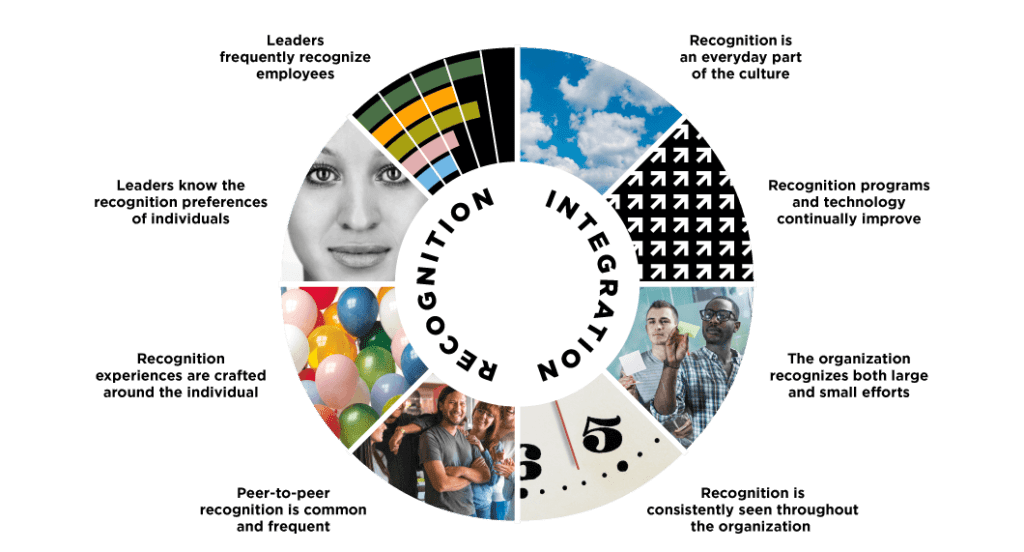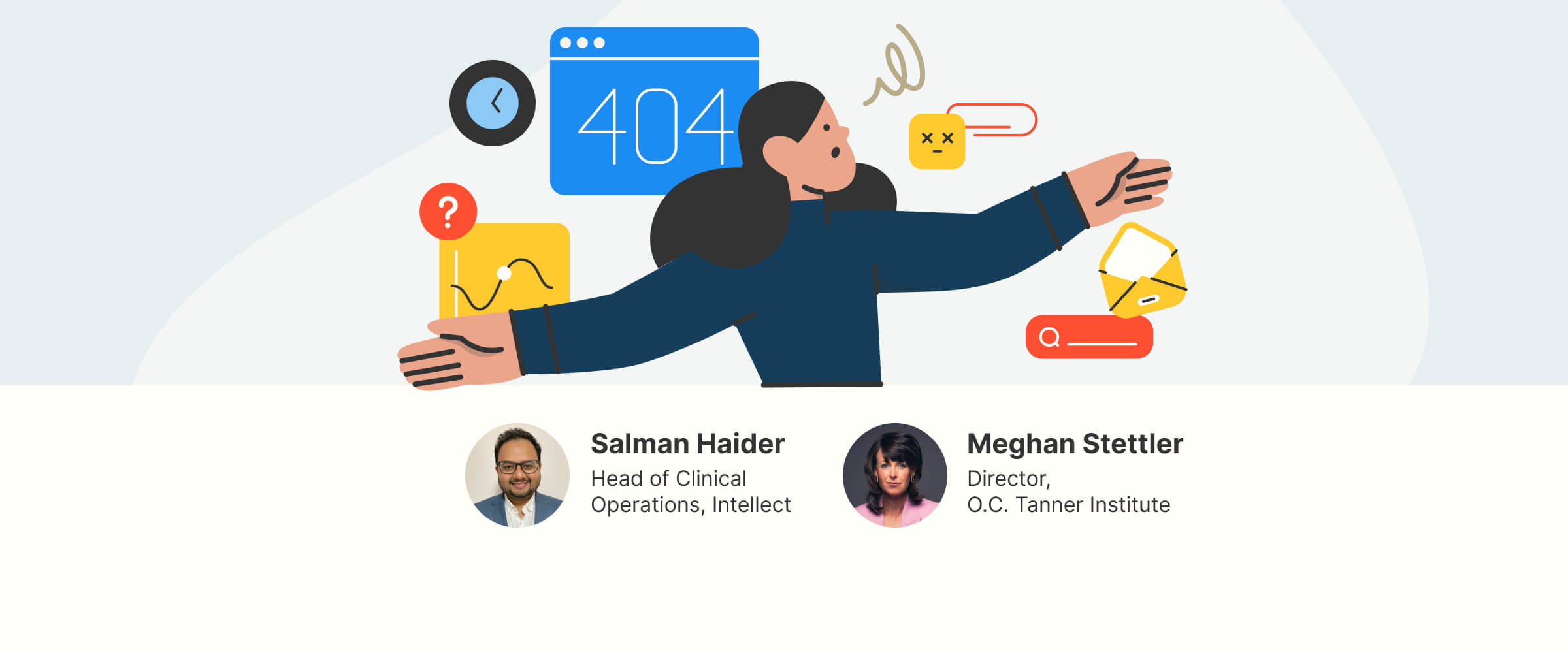According to a 2022 study from McKinsey, workers in the Asia Pacific region are experiencing unprecedented rates of burnout. Compared to the global average of just one in four, one in every three employees in Asia report feeling burnout. Although the study did not disclose the seniority of the respondents, many of the stated reasons are associated with leadership.
Some organisations may urge managers to persevere, with the underlying message being “leaders should be resilient”. However, promoting burnout as an inevitable aspect of the role can be problematic, making it impossible to retain managers.
In our webinar, Leadership at Risk: Strategies for Preventing Burnout and Prioritising Mental Wellbeing, Meghan Stettler, the director of O.C. Tanner Institute, emphasised the importance of organisations taking care of their leaders and managers as much as their rank-and-file employees.
“Leaders are a vital part of the overall organisational community. They help build and shape culture, and they create a sense of belonging, connection, and purpose for their people. Because when leaders thrive, their employees, teams, and the entire organisation thrives, too,” stated Stettler, quoting colleague Gary Beckstrand, the vice president of O.C. Tanner Institute.
Stettler provided some strategies for organisations to retain managers amid a burnout epidemic.

How to retain managers
1. Shift to modern leadership
The pandemic is best known for its impact on how people work. Many employees transitioned from on-site work to hybrid or full telecommuting setups. According to Stettler, one often overlooked consequence of this shift is the change in management styles.
“In these times of uncertainty, employees have reported that many leaders have fallen into those old habits of directing and micromanaging the work rather than mentoring their people,” she said, noting that these leaders have also been withholding information from their teams.
This change in behaviour may be understandable. As leaders are unable to regularly see their subordinates, they may feel the need to micromanage to ensure productivity. Despite this inclination, Stettler believes there is a more effective approach, exemplified by several companies.
For example, United Overseas Bank (UOB) emphasised the significance of communication and connection in a face-to-face townhall where workers from all over the world converged.
“We talked purpose, discussed culture, and capped it off with a group ukulele performance. I thoroughly enjoyed learning, sharing and playing with old and new colleagues, many of whom I have not met in person for three years,” said Dean Tong, the managing director of UOB.
On the other hand, healthcare company Aster granted a high degree of autonomy to their remote employees. After recognizing that the best leaders empower their teams to act independently and make decisions, Aster implemented this practice across the entire company.
“We hadn’t seen that kind of energy [before, but] that’s the kind of energy that leadership has been dying to create over the last 100 years,” said Dr. Amit Singh, Aster’s head of corporate HR.
Instead of only a few individuals making all the decisions, 81% of people within a modern organisation see themselves as leaders. This inclusive approach to power and decision-making has reduced feelings of anxiety, a common consequence of burnout, by an impressive 25%.
2. Grant leaders permission to be vulnerable
According to Salman Haider, the Clinical Operations Lead of Intellect, one of the most critical responsibilities for leaders is to establish a safe space.
Haider emphasised that leaders should demonstrate that they are also employees, just with the added responsibility of maintaining organisational rules. “If you are able to do that with your teammates, I think that will set you off on the right track,” Haider remarked in the webinar.
To establish a peer-like dynamic, leaders and managers must be open to receiving feedback, welcome ideas, and even ask for assistance. The underlying value here is vulnerability.
“I think that’s something Meghan [Stettler] touched on as well: We don’t know it all as a leader, so let’s not try to show or put up a front to try to be the rock of the team because it’s not helping us in the long run,” he explained.
In all their interactions, leaders should be authentic about their experiences, especially because their colleagues and subordinates may be going through similar challenges.
“When they see that both of you are in the same boat, there would be a lot more empathy and collaboration within the team,” he concluded.

3. Decouple compensation and recognition
Monetary rewards are important, but it alone does not suffice for humans who are hard-wired for positive reinforcement. According to Stettler, recognition and compensation should be separated from each other so that recognition can become ingrained as a way of life. Recognition is not merely a superficial, nice-to-have value; rather, it brings strategic advantages to the organisation.
“We pay leaders more, it’s true. But increased pay does not compensate for the lack of appreciation,” she said.
Appreciation reduces a leader’s stress by 52%, and 65% of leaders reported that receiving recognition from their team would enhance their work experience. When recognition becomes an integral part of the company culture, the chances of overall well-being increase by an astonishing 103%.
That being said, recognition can sometimes be misconstrued as a “band-aid” for systemic issues, and it’s important for organisations to see it as a way of life rather than a strategy that is implemented once or twice a year.
“We’ve got to move it from an empty transaction to a natural response to great work. Otherwise, we run the risk of [coming across as] manipulative. When you do this well, it goes from something you do to a reflection of who you are as an individual contributor, as a leader, and as an organisation,” said Stettler.
4. Building a culture of recognition
To help organisations make recognition a natural part of their daily operations, Stettler shared a model used at the O.C. Tanner Institute. This model, consisting of eight pillars, highlights the significance of personalising recognition to each individual’s unique preferences.
(Your employees have “love languages” too; they’re called “languages of appreciation”. Learn more about them here.)

It encourages organisations to implement initiatives that celebrate achievements, both big and small, and deliver recognition through various channels, including informal methods and formal programs supported by technology.
One of the best ways to celebrate an employee’s career milestones is through a symbolic award that commemorates a person’s years of service, as the Mandai Wildlife Group does.
“In this time of exclusion, we need to build belonging. We’re learning in research that those symbols create a sense of community and connection and shared understanding between people because it tells the story of the organisation and how you have been part of it,” Stettler said.
In fact, when leaders feel like an integral part of the workplace community, the likelihood of fostering a thriving culture increases by 19 times.
How Intellect can help
With the pandemic and now the economic crisis, many employees are facing a host of personal and professional problems, which they often unload on their managers. Managers, in turn, may experience “compassion fatigue” despite their best interests to help their subordinates.
Intellect can help on this front by coaching leaders on how to be more empathetic, improve their EQ, and better mentor their subordinates through these challenging times. Just as importantly, Intellect can assist leaders on when to escalate issues to relevant experts.

“How do you support these crucial conversations with your people? Know when [it’s appropriate to say], ‘Hey, thank you for sharing. There’s a great resource here that we have available at our organisation,’” Stettler said.
This escalation process is facilitated by the Intellect ecosystem, which includes coaches, counsellors, and psychologists. By demonstrating that they don’t have all the answers, leaders once again exhibit the vulnerability necessary for creating a safe space in the workplace.
“At the end of the day, this challenge we are experiencing is a byproduct of isolation and loneliness just coming to a head. People are looking for these genuine connections. We need to be able to provide a safe and healthy environment in exchange in the workplace,” she said.








